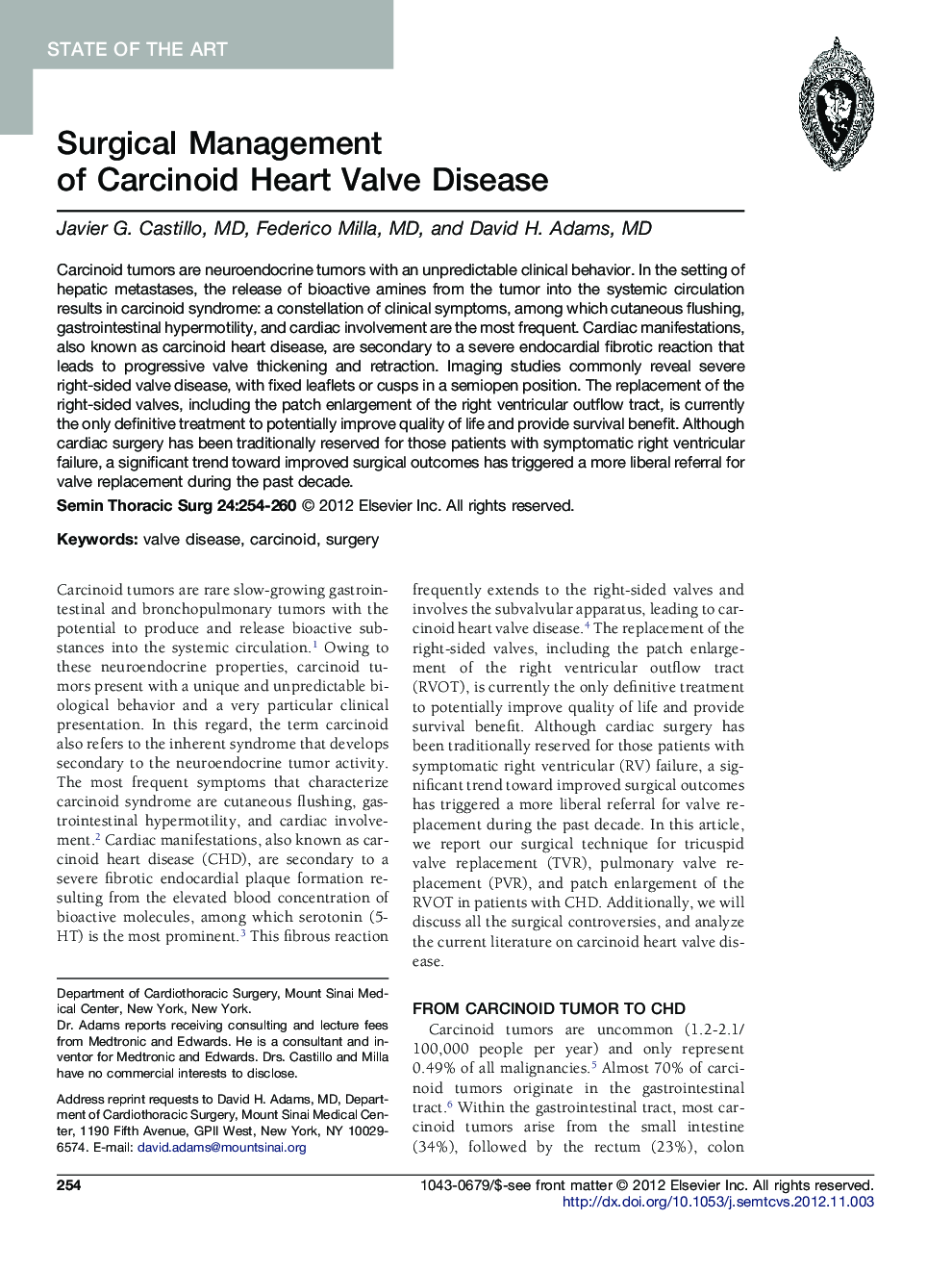| Article ID | Journal | Published Year | Pages | File Type |
|---|---|---|---|---|
| 3025336 | Seminars in Thoracic and Cardiovascular Surgery | 2012 | 7 Pages |
Carcinoid tumors are neuroendocrine tumors with an unpredictable clinical behavior. In the setting of hepatic metastases, the release of bioactive amines from the tumor into the systemic circulation results in carcinoid syndrome: a constellation of clinical symptoms, among which cutaneous flushing, gastrointestinal hypermotility, and cardiac involvement are the most frequent. Cardiac manifestations, also known as carcinoid heart disease, are secondary to a severe endocardial fibrotic reaction that leads to progressive valve thickening and retraction. Imaging studies commonly reveal severe right-sided valve disease, with fixed leaflets or cusps in a semiopen position. The replacement of the right-sided valves, including the patch enlargement of the right ventricular outflow tract, is currently the only definitive treatment to potentially improve quality of life and provide survival benefit. Although cardiac surgery has been traditionally reserved for those patients with symptomatic right ventricular failure, a significant trend toward improved surgical outcomes has triggered a more liberal referral for valve replacement during the past decade.
